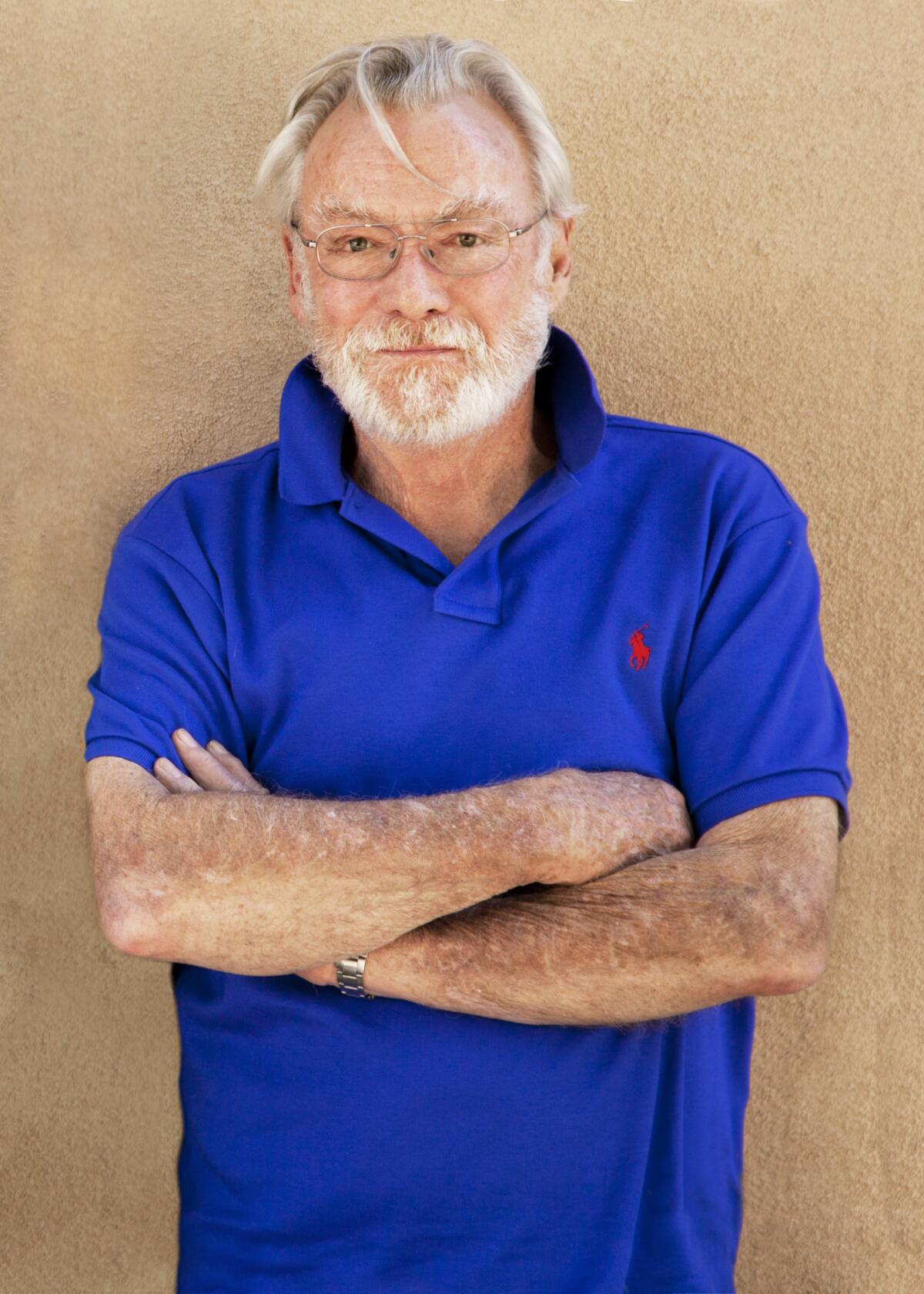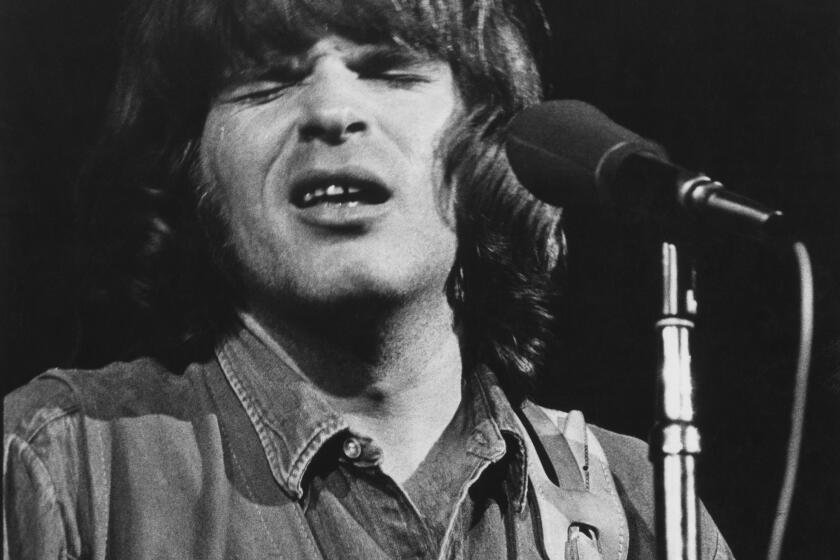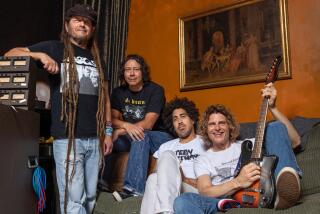John Morris, one of the organizers of the original 1969 Woodstock festival, dead at 84

- Share via
John Morris, who helped organize the historic 1969 Woodstock Festival of Art and Music, died Friday at his home in Santa Fe, N.M., his family confirmed to The Times. He was 84.
Morris died after dealing with a long illness — he suffered from COPD for years and had previously battled cancer.
“One of the things that I always loved most about John is that he was one of the most egalitarian people you would ever meet. He would think nothing of putting a plumber next to the Queen of England at a dinner party and it would be fun — that’s just the way he was. He saw people for who they were,” Luzann Fernandez, Morris’ partner of 33 years, told The Times.
“He was an adventurer, I had amazing adventures with him. He had a great sense of humor. I used to love teasing him about how he was semi-famous,” Fernandez continued. “He had friends all over the world from all walks of life and he always stayed in touch.”
On that first day, a midsummer Friday, 50,000 people jammed into a dusty fairground in the San Fernando Valley.
Before joining the organizing committee for Woodstock, Morris worked as a rock concert producer for notable acts such as Jefferson Airplane, the Doors and the Grateful Dead. He worked alongside Bill Graham — the acid-tongued concert promoter who championed rock acts during San Francisco’s psychedelic era and went on to play a leading role in pop music’s emergence as a cultural force.
Morris produced the San Francisco-based Jefferson Airplane’s first East Coast tour and helped them go on their first European tour, accompanied by the Jim Morrison-led Doors. After spearheading those tours, Morris put together shows at New York City’s Anderson Theatre, one of the first downtown rock halls in the city. He then began working at Graham’s NYC rock venue, the Fillmore East, which opened in 1968. There, Morris produced shows for Janis Joplin and B.B. King.
Due to the success of his many gigs, Morris was tapped to be the head of production for the Woodstock festival and served as one of the de facto MCs of the program. He notably made the public address announcement that Woodstock had converted into “a free concert.”
“This is one thing that I was going to wait awhile before we talked about, but maybe we’ll talk about it now so you can think about it, because you all, we all, have to make some kind of plans for ourselves. It’s a free concert from now on. That doesn’t mean that anything goes. What that means is that we’re gonna put the music up here for free,” Morris told the crowd, as captured in the 1970 documentary of the festival, “Woodstock.”
Fifty years ago, Creedence Clearwater Revival was forced to follow a “drugged-out” Grateful Dead at Woodstock, resulting in a set they didn’t want memorialized... until now.
“What it means is that the people who are backing this thing, who put up the money for it are gonna take a bit of a bath, a big bath. That’s no hype, that’s truth, they’re gonna get hurt,” he continued before going into a fitting message of unity and peace. “ But what it means is that these people who put this thing here, have it in their heads ... that your welfare and their welfare is a hell of a lot more important than the music is, than the dollar.”
Morris recalled the troubles faced by the Woodstock production team in a 2017 interview.
“We dealt with what became one of the largest cities in New York State at that point (attendance at 400,000) — managed to put on one of the best music concerts of all time, which is immortalized in the Woodstock film,” Morris told the Malibu Times. “You can see me in that film announcing and coming as close to a nervous breakdown as humanly possible. On Sunday, we had what was later on called a tornado that shot through the festival, poured rain, wind — the stage started sort of sliding, feeling dangerous.
“I had to tell everybody to get off the towers,” he said, remembering the event fondly. “We hunkered down — we survived it. I still think it’s the best concert I’ve ever been involved in.”
“I ‘m not going back to Woodstock for a while / Though I love to see that lonesome hippie smile,” sang Neil Young in 1974.
Post-Woodstock, Morris organized the opening of London’s Rainbow Theatre as a rock venue. The Who served as the location’s opening concert on Nov. 4, 1971. The ever-busy Morris worked as a concert producer until 1990, collaborating on tours with Paul McCartney’s Wings, Santana, Chuck Berry, Ike and Tina Turner, David Bowie, Pink Floyd, Stevie Ray Vaughan and Frank Zappa, among others.
Morris was born into a military family in Gramercy Park, New York City in 1939. His father served in the U.S. Army during the Korean War. When the war finished, the family relocated to Pleasantville, N.Y. Morris studied theater at Carnegie Tech (now Carnegie Mellon University) in Pittsburgh, and then worked as a lighting designer in off-Broadway productions before he launched into his career as a rock show producer.
He is survived by Fernandez, his brother Mark Morris, nephew Eric Morris and nieces, Nicole Merrick, Marie Fernandez and Katie Fernandez.
More to Read
The biggest entertainment stories
Get our big stories about Hollywood, film, television, music, arts, culture and more right in your inbox as soon as they publish.
You may occasionally receive promotional content from the Los Angeles Times.











